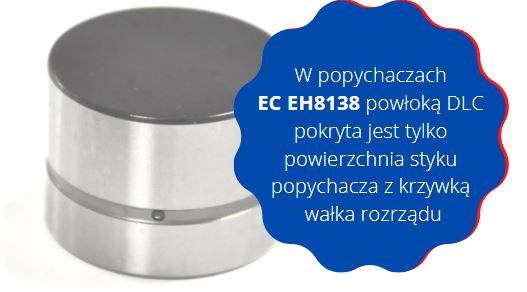How Do Engine Pistons Work?
Pistons in an engine have been an essential component since the inception of internal combustion engines. Pistons are located in the engine block and are part of the crank-piston system. Their task is to receive mechanical energy from the combusted fuel-air mixture and transmit it (via the connecting rod) to the crankshaft to set it in rotary motion. Pistons are made of aluminum or steel.
What to Do if a Piston is Knocking Against the Head?
In the case of a noticeable knocking sound in the engine, you should immediately stop driving and turn off the engine. Knocking can come from the upper part, which is a collision of the valves with the pistons, or from the lower part – a broken oil film between the bearings and the crankshaft. If the damage occurred shortly after an engine overhaul, it could mean using an incorrect thickness of the head gasket, excessive planning of the head, or malfunctioning valve lifters.
How to Know if a Piston Needs Replacement?
A piston needs replacement if there are significant damages on the surface of the piston, such as scratches or chipping of the material. Additionally, all dimensions of the piston and the clearances must be within tolerance. It is also necessary to verify the clearance in the piston ring groove – if the clearance is greater than 0.12mm, a new piston should be used.
How to Select a Piston After Grinding?
Before proceeding with grinding, determine whether oversized pistons are available for your engine. It may turn out that they are not available, or only cylinder liners are present in the market. Usually, piston grinds are available in sizes of 0.25mm (1st grind), 0.50mm (2nd grind), 0.75mm (3rd grind), and 1.00mm (4th grind). There are exceptions, like in French cars, where the 1st grind is an oversize of 0.30mm. Measure the diameter in the engine cylinder after grinding using a micrometer. If after measuring it turns out that the diameter increased by 0.25mm, use a piston after the 1st grind. Correspondingly, the subsequent grinds increase by 0.50mm, 0.75mm, and 1.0mm.
Why Do Pistons Crack?
Pistons are made of aluminum or steel, which means they have significant durability in the engine, sometimes even lasting up to a million kilometers. One reason for piston cracking is inept power increase, known as chip tuning. If the engine’s power is significantly increased, increasing its strain, it can lead to engine failure. Another cause of piston cracking is problems with the injection system, including incorrect injection timing or incorrect injection dose.


